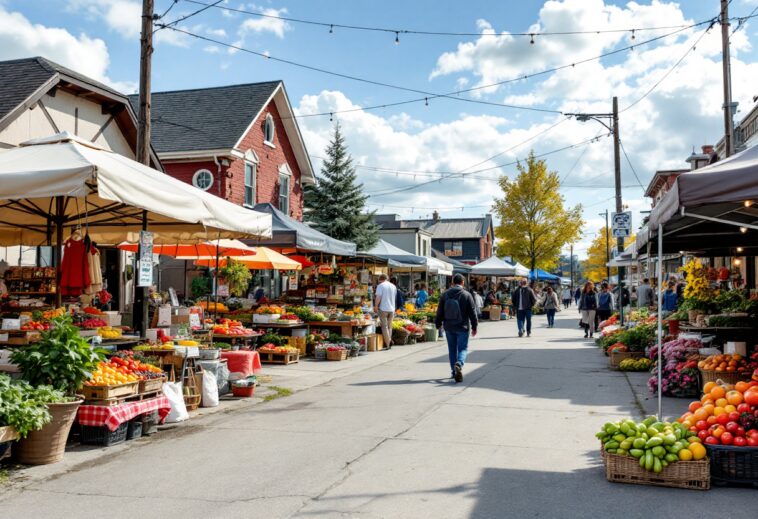Table of Contents
Understanding the Border Dynamics
For many Canadians, living near the U.S. border is akin to residing in a close-knit neighborhood. The proximity fosters familial ties and cultural exchanges that transcend national boundaries. As Niagara Falls Mayor Jim Diodati aptly put it, crossing the border feels like a simple trip across town.
This sentiment resonates deeply in communities where daily interactions with Americans are commonplace, from shopping trips to shared sports fandoms. However, recent tariff announcements have cast a shadow over these relationships, leaving many residents feeling unwelcome and uncertain about their cross-border activities.
Community Reactions to Tariff Announcements
The announcement of impending tariffs by former President Donald Trump has elicited strong reactions from border communities. Diodati reported that constituents expressed feelings of betrayal and discomfort, with one resident even questioning their desire to cross the river into the U.S.
This sentiment is echoed in other border towns, such as Sault Ste. Marie, Ontario, where Mayor Matthew Shoemaker highlighted a sense of betrayal among residents who share a long-standing friendship with their American counterparts. The Twin Saults, linked by a shared history and a bridge, are now facing the potential fallout of trade barriers that could disrupt their daily lives.
The Economic Ripple Effect
Economic implications of these tariffs extend beyond mere sentiment. In Niagara Falls, tourism plays a crucial role, with Americans constituting a significant portion of visitors and revenue. Diodati noted that if tariffs are enforced, the tourism industry could suffer, impacting local jobs and businesses.
Similarly, in Sault Ste. Marie, the local economy heavily relies on cross-border trade, particularly in steel production. Mayor Shoemaker warned that a downturn in steel exports could have a cascading effect on local businesses and families. As these communities grapple with the potential economic fallout, the question remains: how will they adapt to a changing trade landscape?
Looking Ahead: Navigating Uncertain Waters
As the situation unfolds, border communities are left to ponder the long-term effects of these tariffs. Will the bonds that have been forged over decades withstand the strain of economic policies? Diodati remains hopeful, emphasizing the importance of maintaining strong relationships with American neighbors. He believes that once the dust settles, both nations will continue to rely on each other as primary trading partners. The resilience of these communities will be tested, but their shared history and interdependence may ultimately prevail in the face of adversity.




